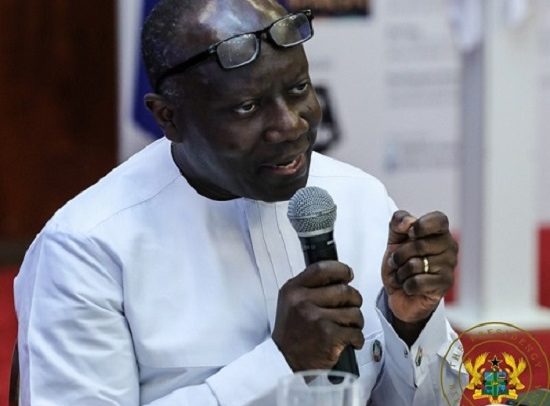Ken Ofori-Atta
Minister of Finance, Ken Ofori-Atta, has stated that the economy is showing signs of recovery, with the exchange rate stabilised, inflation softened, and interest rates declined since December 2022.
Therefore, the government will not require a Supplementary Budget as it has been focused on implementing all the measures presented in the 2023 Budget and the positive sentiments arising from the progress with the International Monetary Fund (IMF) Programme.
Presenting the mid-year fiscal policy review of the 2023 Budget Statement and Economic Policy of the Government in Parliament yesterday, the minister said, “As I have indicated, we have made significant progress on restoring macroeconomic stability and the narrative is changing.”
Towards addressing the macro-fiscal challenges faced in 2022, Mr. Ofori-Atta disclosed that the government engaged the IMF to support the implementation of its PC-PEG.
“On 17th May, 2023, the Executive Board of the IMF approved a 36-month Extended Credit Facility (ECF) in an amount equivalent to SDR 2.242 billion (approximately US$3 billion),” he noted.
According to him, the programme is anchored on the government’s PC-PEG and designed to restore macroeconomic stability and debt sustainability.
He explained that this includes extensive reforms to strengthen resilience and lay the foundation for stronger and more inclusive growth.
He asserted that the programme had been designed to address the key issues facing the economy through large and front loaded fiscal consolidation to bring public finances back on a sustainable path.
“The programme envisages a cumulative fiscal adjustment of 5.1 percentage points (ppt) of GDP over the programme period (2023-2026) with a fiscal effort of 3.8 percentage points (ppt) in 2023 alone.
“The primary deficit on a commitment basis will be reduced from 4.3 percent of GDP in 2022 to 0.5 percent in 2023. The fiscal consolidation will be executed by both mobilising more domestic revenue, and improving the efficiency of spending,” he pointed out.
He added that the programme was also to protect the vulnerable through enhancement of existing social protection programmes, including the Livelihood Empowerment Against Poverty (LEAP), National Health Insurance Scheme (NHIS), the Capitation Grant, and the School Feeding Programme.
“The 2023 Budget, for example, doubled the benefits under the LEAP Programme as well as boosted the allocations to the School Feeding Programme,” he stated.
According to him, it is again to boost strong and ambitious structural reforms in tax policy, revenue administration, public financial management, financial sector, as well as strong measures to enhance revenue mobilisation and address weaknesses in the energy and cocoa sectors – both are critical to bring public finances back on sustainable path while creating fiscal space for critical development spending.
The programme is to also bring inflation under control through prudent monetary policy, including appropriate monetary policy tightening and the elimination of monetary financing of the budget.
Containing inflation pressures requires coordination between fiscal policy and monetary policy, the minister said.
Revenue Measures
Mr. Ofori-Atta said the government introduced several revenue measures to support the fiscal consolidation and growth agenda.
The policy interventions were specifically targeted at growing the revenue base to yield an estimated 1.35 percent of GDP, he intimated.
He added that “the Ministry of Finance (MoF) and Ghana Revenue Authority (GRA) are working together to ensure the realisation of the full yield in the near future, through enhanced collection efforts, governance, and E-VAT implementation.”
Arising from the Domestic Debt Exchange Programme (DDEP), he said several structural changes have commenced in the reporting of Ghana’s debt data.
“The debt from the Special Purpose Vehicles, which previously was not part of the Central Government debt, has now been included.
“Furthermore, we would be including the long term debt of selected SOEs such as COCOBOD and contingent liabilities arising from IPPs-PPAs and financial sector recapitalisation,” he indicated.
By Ernest Kofi Adu, Parliament House


